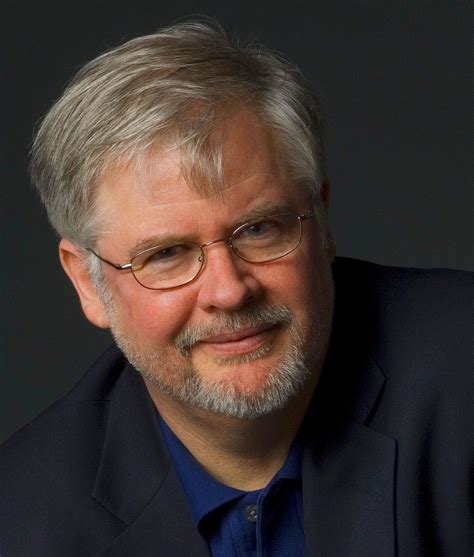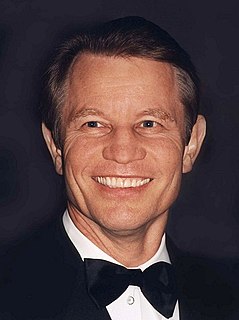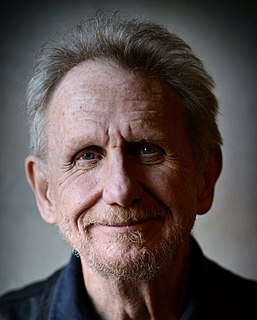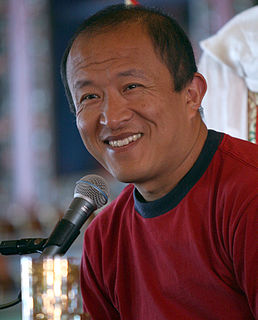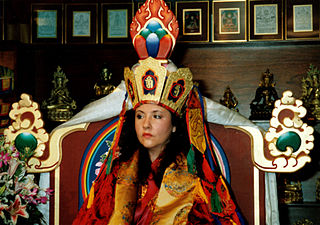A Quote by Sogyal Rinpoche
Modern civilization is largely devoted to the pursuit of the cult of delusion. There is no general information about the nature of mind. It is hardly ever written about by writers or intellectuals; modern philosophers do not speak of it directly; the majority of scientists deny it could possibly be there at all. It plays no part in popular culture: no one sings about it, no one talks about it in plays, and it's not on TV. We are actually educated into believing that nothing is real beyond what we can perceive with our ordinary senses.
Quote Topics
About
Actually
Believing
Beyond
Civilization
Could
Cult
Culture
Delusion
Deny
Devoted
Directly
Educated
Ever
General
Hardly
Information
Intellectuals
Largely
Majority
Mind
Modern
Modern Civilization
Nature
Nothing
Ordinary
Our
Part
Perceive
Plays
Popular
Popular Culture
Possibly
Pursuit
Real
Scientists
Senses
Sings
Speak
Talks
TV
Writers
Written
Related Quotes
There's nothing personal in it [THE SKRIKER]. I'm not ever inclined with any of the plays to say, This is about that, because plays are about the whole event that they are. . . . I was certainly wanting to write a play about damage - damage to nature and damage to people, both of which there's plenty of about. To that extent, I was writing a play about England now.
For Tommy, on that hot and empty afternoon, was in a state of mind in which grown-up people go away and write books about their whole world, and stories about what it is like to be married, and plays about the important problems of modern times. Tommy, being only ten years old, was not able to do harm on this large and handsome scale.
The complaint about modern steel furniture, modern glass houses, modern red bars and modern streamlined trains and cars is that all these objets modernize, while adequate and amusing in themselves, tend to make the people who use them look dated. It is an honest criticism. The human race has done nothing much about changing its own appearance to conform to the form and texture of its appurtenances.
I had written a lot about my dog dying before. I wrote a newspaper column about it and it turned out to be the most popular column I'd ever written. That and the lame Joni Mitchell column I did. But the dog column, my god! People love dogs. Anybody who writes regularly should know, when in doubt: dogs! If you're a columnist, when in doubt, write a column about the culture of narcissism - like a scolding column about the culture of narcissism - or write something about dogs. That's the homerun in my take.
The media plays an essential role in our culture. It is the Fourth Estate; it's an undeniably essential instrument in the great American experiment - in keeping our democracy functional. People have very strong opinions about what that means and how information should be disseminated to a population that requires information.


